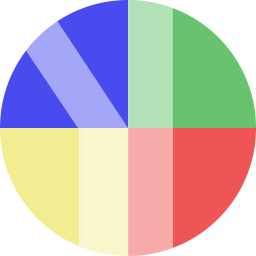What is an “open source” or “meme” religion?
In a sense, most religions are “open source.” Source codes (sacred texts) are made available to developers (priest classes) who shape and release them to end users (followers). Adherents to faiths may be encouraged to engage with the original code, but as with modern software, it’s often the exception. And all religions are by definition “memeplexes” — collections of self-replicating units of cultural information.
How is KRNL different?
KRNL (pronounced, “kernel”) seeks to simplify the code. The name comprises the entirety of the core text: Knowledge, Respect, Novelty, Love. Each of these “Cardinal Aspects” actually represents deeply nuanced and fundamental aspects of the universe, experience, and interpersonal relations.
KRNL is designed to be simple to install and fully extensible by end-users. It’s compatible with most human operating systems — that is, ethics, ideologies, and religions — and is couched in a series of puns, to shield itself from the corrosive seriousness of dogma.
The initial release, displayed at thekrnl.org, expands the four Cardinal Aspects into a concise, 256-word summary that hopefully captures the potential breadth of the exercise. It is not meant to be prescriptive, but rather, provocative and/or evocative.
That’s all there is to it? The whole “religion” is four words?
Like alchemical transmutation, or joining trigrams to create more nuanced I Ching hexagrams, the four Cardinal Aspects combine and recombine to create a deeper system, currently designed for 256 total aspects. You can follow the 64 Second Order Aspects on the blog as they unfold through KRNL Cycle 1, the beginning of a new calendar.
In the end, KRNL is meant to inspire reflection around faith, morality, and self-understanding, be a platform for interfaith exploration, and contains some radical ideas waiting to be articulated. If nothing else, it is a passion project of deep personal introspection and broad comparative religious research, and I hope you get a kick out of it.
But… It’s just a pun?
What, KRNL? Yeah. It’s pronounced “kernel,” like a “kernel of truth,” or the kernel of an operating system. In computers, the kernel manages some of the most fundamental functions — translating software requests into the electrical language of hardware.
If you wanted to take it seriously, you can think of our subjective experience, behavior, and reactions as our “operating system,” and that this is a simple mental system through which to filter our own choices and electrical impulses.
Is this for real?
Yes, this is for real. I completely believe what I’m saying.
But you’ve called it an art project elsewhere.
I’ve also called it a joke. But if you don’t believe in your art, what the hell are you doing?
–DJ
